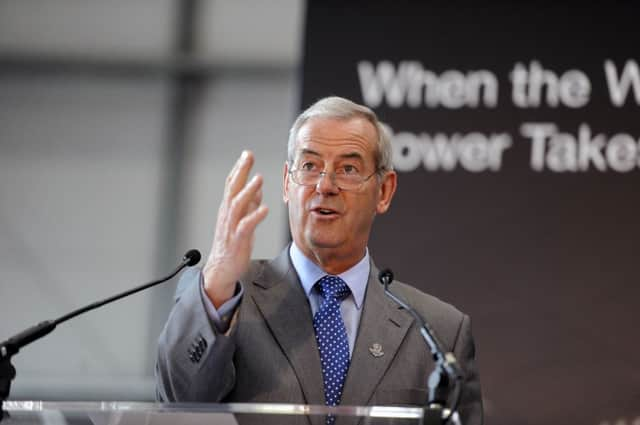Leaders: SNP’s positive step to healing division


Given the vehemence of the referendum battle and the scathing terms by which First Minister Alex Salmond and the Yes campaign leadership denounced the last-minute pledge on more powers, it was never going to be easy for the party to engage on the further devolution process. But if the battle was divisive, the outcome was also emphatic – and sufficiently so for the SNP to respond in a mature manner.
Its response, of course, does not make agreement between Scotland’s politicians any more likely. The complexities involved in securing agreement – not only between the parties but also within their own ranks – will make this a fraught and heated process. But the decision to engage with Lord Smith does ensure that the Scottish Government is prepared to make a positive contribution and to be a constructive, if critical, participant.
Advertisement
Hide AdAdvertisement
Hide AdNo-one doubts that the primary aim of the SNP will remain full independence. Mr Salmond made that abundantly clear in remarks made over the weekend in the wake of the result. But the case for engagement is compelling – and even more so considering the alternative, of standing aside.
Had the SNP stood back from these consultations, as it stood back from the Constitutional Convention in the 1980s and 1990s, this would have worked to entrench the divisions left in the wake of the independence referendum battle rather than working to heal them. And the overwhelming wish of Scots is that these divisions are cauterised and overcome.
This is particularly important in the economic realm, where damage has been done to business confidence. It is vital for investment that companies are confident of political stability in Scotland and that the country does not become a perpetual battleground over independence.
There are further reasons for the SNP to adopt this positive response. With the significant new support it has gathered in the wake of the referendum, it is all the more important that it rediscovers its role as a powerful force for change in Scottish constitutional affairs.
It has much to contribute in this regard. The unionist parties, for their part, would do well to recognise that the SNP voice not only needs to be heard, but also to be reflected in whatever outcome is agreed, to produce the highest common denominator.
That 45 per cent backing for independence on a historically high turnout has fundamentally changed the dynamics of Scottish politics. For that reason, while a deal that embraces the three unionist parties is a necessary condition for more powers to be achieved, it is by no means sufficient for Scotland to move forward with confidence.
Parliament must have a say on Syria
US airstrikes for the first time in Syria to halt the murderous advance of Islamic State (IS) militants marks a significant escalation of western military engagement. Prime Minister David Cameron has expressed his support for the American action. With US president Barack Obama having also secured the backing of five Arab states – Jordan, Qatar, Saudi Arabia, Bahrain and the United Arab Emirates – the question now is whether Mr Cameron will back his words with UK participation in future strikes.
This is sensitive terrain for the Prime Minister for three reasons. First is the absence of a United Nations resolution, as called for by Labour leader Ed Miliband. The second is the lack of Parliamentary support for direct military intervention. Mr Cameron will want to be sure, before approaching parliament, that he has a fair certainty of getting it, after last year’s embarrassing Commons defeat when he lost a vote on airstrikes against Syrian government forces in relation to the regime’s use of chemical weapons against the rebels.
Advertisement
Hide AdAdvertisement
Hide AdThe third is the lack of clarity over how the effectiveness of any direct British military engagement can be measured. Britain has so far helped supply arms to the Kurdish peshmergas fighting IS in northern Iraq, and offered support to the new Iraqi government. And while Downing Street has said nothing has been ruled out, Foreign Secretary Philip Hammond has said there would be significant military, legal and technical difficulties in mounting strikes on Syrian territory.
Before the UK is drawn in further, it is vital Parliament be recalled in the next few days to secure endorsement by the House of any escalation.